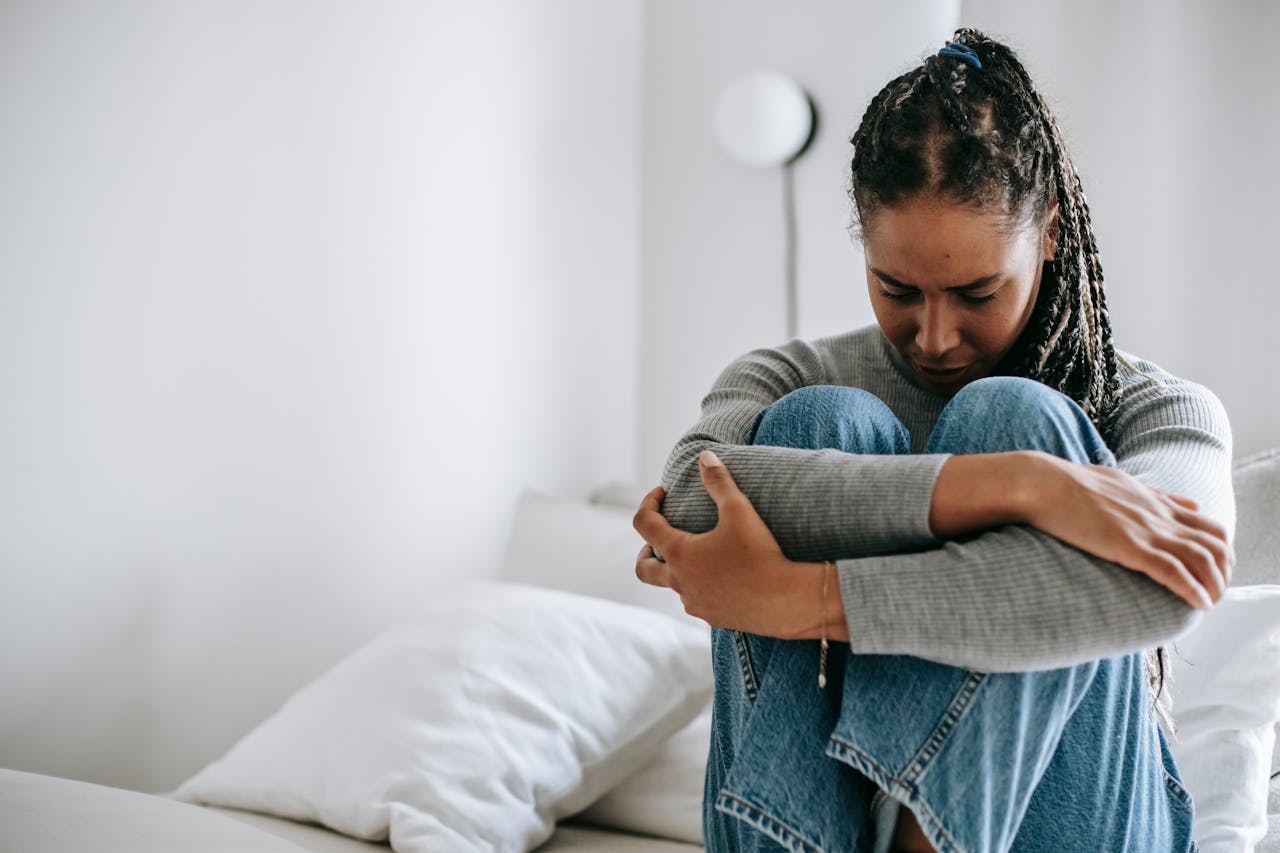What Is Codependency?
If you've ever felt like your sense of worth is tied to someone else's happiness, struggled to set boundaries, or found yourself in relationships where you give more than you receive, you might be experiencing codependency. Codependency goes beyond being overly caring—it's a pattern where your self-esteem, identity, and emotional well-being become entangled with another person. It often stems from early experiences in life, shaping how you connect with others in adulthood.
Codependency is a behavioral pattern where a person prioritizes the needs, emotions, and well-being of others over their own to the point that it becomes harmful to themselves. It often leads to difficulty setting boundaries, low self-esteem, and a reliance on external validation for self-worth.
While codependency is commonly discussed in the context of relationships that involve addiction or abuse, it can occur in any dynamic, including friendships, family relationships, and even workplace interactions. If you frequently feel responsible for other people's happiness while neglecting your own, you may be struggling with codependency.
The good news? You can break free from codependent patterns and learn how to build healthier, more fulfilling relationships. It takes awareness, practice, and sometimes professional support, but it's absolutely possible.

Signs of Codependency
Codependency can show up in various ways, but common signs include:
- Difficulty setting boundaries – Saying no feels impossible, even when it's necessary. You feel guilty or anxious about saying no.
- Excessive people-pleasing – You go out of your way to avoid conflict and seek approval. You prioritize others' needs at the expense of your own, even when it harms you.
- Neglecting your own needs – Your emotional and physical well-being take a backseat to others. You struggle to identify your own desires, hobbies, or goals outside of the relationship.
- Feeling responsible for others' emotions – You believe it's your job to keep everyone happy.
- Fear of abandonment – The idea of someone leaving causes extreme anxiety or distress. You go to great lengths to keep people in your life, even if they mistreat you.
- Low self-esteem – You base your value on how much you do for others.
- Emotional exhaustion – You feel drained from constantly managing others' emotions.
- Controlling behaviors – You attempt to manage or 'fix' others to feel secure in relationships. You feel responsible for fixing others' problems.
- Struggling with decision-making – You seek external validation before making choices.
- Over-identifying with others – You lose a sense of who you are outside of your relationships.
If these behaviors resonate with you, you're not alone. Recognizing codependency patterns is the first step toward creating change for yourself.
How to Spot Codependency in Your Life
1. Examine Your Relationships
Do you feel resentful, exhausted, or unappreciated in your relationships? Codependency often creates imbalanced dynamics where one person gives significantly more than they receive. If you find yourself in relationships that drain you, it may be time to reassess your boundaries.
2. Notice Your Emotional Reactions
Are you overly affected by other people's emotions? If someone close to you is upset, do you immediately feel anxious or responsible? Codependency often manifests as an inability to separate your emotions from those of others.
3. Identify Where You Struggle with Boundaries
Think about moments when you felt uncomfortable but said "yes" anyway. Codependency often involves sacrificing your comfort to avoid rejection, guilt, or conflict. Healthy relationships require mutual respect for personal limits.
Below are questions that can help you take a step back and examine patterns and behaviors in your life:
- Do I feel guilty when I put myself first?
- Do I have a hard time saying no?
- Do I feel anxious or empty when I'm not helping someone?
- Do I stay in unhealthy relationships because I fear being alone?
- Do I avoid conflict at all costs, even if it means suppressing my feelings?
- Do I feel worried when other people are upset?
- Do I feel responsible for making them happy or fixing their problems?
If you answered yes to several of these, you might be caught in a cycle of codependency. The next step is learning how to shift these patterns.

How Do I Stop Being Codependent?
Overcoming codependency takes time and self-compassion, but with small, intentional changes, you can start to reclaim your sense of self. Below are ways that you can begin to identify and break patterns of codependency in your life:
Build Self-Awareness
Breaking free from codependency starts with recognizing patterns in your life. Journaling about your emotions, behaviors, and triggers can help you identify where codependency is showing up.
Start Prioritizing Yourself
You deserve to have your own needs met—without guilt. Start small by checking in with yourself: What do you want? What do you need? Give yourself permission to focus on your own well-being. You can begin by noticing one small want or need for yourself and then commit to meeting that want or need.
Practice Setting Healthy Boundaries
Establishing and following through on boundaries is crucial. Start small—say no to requests that feel overwhelming, express your needs clearly, and stop apologizing for prioritizing yourself.
Saying no doesn't make you selfish. It helps you care for yourself AND show up more genuinely in the relationships that you care about. Boundaries protect your energy and emotional health. Below are phrases you can practice using:
- "I appreciate you asking, but I can't take that on right now."
- "I need some time for myself, so I'm not able to come this weekend."
- "I can come help, but I'm only able to stay for one hour."
- "I'm not okay with you speaking to me this way."
- "I want to talk about this. Let's schedule a time where I'm able to be more present."
It may feel uncomfortable, but boundaries create healthier, more balanced relationships.
Detach from Others' Emotions
It's not your responsibility to fix, rescue, or absorb others' emotions. You can care without carrying their burdens. Learning to detach emotionally while still being supportive can help you build healthier relationships and be in a better mindset to care for yourself and your loved ones. Try reminding yourself: "Their feelings are not my responsibility." "It's not my job to fix this for them."
Challenge Negative Beliefs About Self-Worth
Codependency is often linked to low self-worth and believing you're only valuable when you're needed. You are worthy, even when you're not giving, fixing, or sacrificing for others. Work on affirming your own value independent of what you do for others, and focus on building confidence from within. Engage in activities that make you feel capable and strong, and work on speaking to yourself with kindness.
Develop Your Own Interests and Identity
Who are you outside of your relationships? Rediscover hobbies, passions, and dreams that are just for you. Whether it's taking a class, picking up an old hobby, or simply spending time alone. Set aside time to practice reconnecting with yourself and how you want to spend your time and energy.
Challenge People-Pleasing Tendencies
Ask yourself: Am I doing this because I truly want to, or because I'm afraid of upsetting someone? Learning to tolerate discomfort instead of defaulting to people-pleasing can help you regain control over your choices.
Practice Self-Compassion and Care
Healing from codependency is a process, not an overnight fix or something you suddenly arrive at. Practice being kind and gentle to yourself. Instead of self-criticism, try speaking to yourself as you would a good friend: "I'm learning. I'm growing. I'm allowed to set boundaries." Allow yourself space to make mistakes, change your mind, and continue to learn about yourself and what you need. Just as you would identify another person's needs, practice identifying your own needs and ways to meet them. Find ways to prioritize caring for your mind and body and challenge any guilt that arises when you take care of yourself.

Consider Therapy for Codependency
Codependency is often rooted in early life experiences, including childhood trauma, family dynamics, or past relationships. Working with a therapist can help you process these experiences, break deep-seated codependent patterns, and develop healthier patterns moving forward. A therapist can help you:
- Build self-awareness.
- Identify where your codependent tendencies come from.
- Challenge negative beliefs about yourself.
- Learn and practice tools to set boundaries and communicate effectively.
- Work through fears of abandonment or guilt around putting yourself first.
- Rebuild your self-worth from the inside out.
- Practice and strengthen self-compassion.
Seattle Therapy for Codependency at Existential Psychiatry
Healing from codependency isn't something you have to do alone. Therapy can provide the support, tools, and insight needed to break free from unhelpful patterns and build fulfilling, balanced relationships. Dr. David Zacharias at Existential Psychiatry specializes in helping individuals work through codependency, develop a stronger sense of self, and create healthier connections.
If you've been asking yourself how do I stop being codependent and realize you need extra support, reach out for a free consultation. You deserve to prioritize your health and well-being and to be in relationships that nourish—not deplete—you. Let's work together to help you reclaim your life.
Written by Existential Psychiatry
Sources
Springer, C. A., Britt, T. W., & Schlenker, B. R. "Codependency: Clarifying the construct." Journal of Mental Health Counseling_,_ 1998.